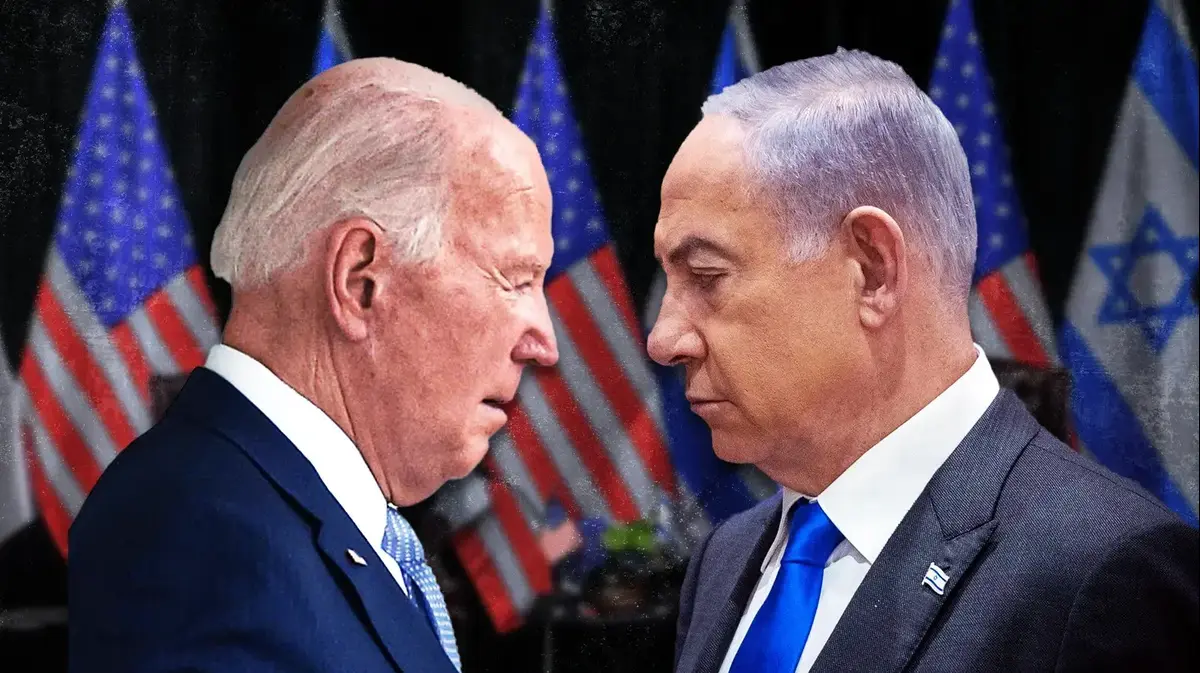Business
Opinions
Leadership in the Mirror of Psychology: Did Netanyahu Succeed or Fail in Managing the Crisis?
One part of the population believes that it is not appropriate for the prime minister to manage the corona crisis, others blame him for the situation.
Since there is no one truth, we turned to a number of leading theories and tried to test.
The findings are not unequivocal, but the very division in the nation leads us to the answer
Tags
Benjamin Netanyahu
Dana Pan Luzon
Wednesday, 28 October 2020, 01:24
Share on Facebook
Share on WhatsApp
Share on general
Share on general
Share on Twitter
Share on Email
0 comments
Finance Minister Katz meets with heads of disabled organizations: expresses appreciation ...
Danny Vidislavsky
Obama at a Bayden rally in Pennsylvania: "Trump can not ...
Biden: "I will make a transition from the oil industry": Trump: "Remember ...
Cabinet approves peace agreement with UAE ...
Bank of Israel's campaign on interest rates 22.10.20
The Prime Minister at the control headquarters of the police in Beit Dagan.
Gadi and Tali Michaels
Abu Dhabi Emirates
In the video: Netanyahu accuses the opposition of wasting time instead of helping to fight the Corona (Photo: Knesset Channel, Editing: Itai Amram)
Leadership is explained by different theories.
This is how society and its citizens see and examine the leader.
Some see the prime minister as the ultimate leader, the right choice and the man who manages the corona crisis at a high level.
His supporters say he is facing an almost impossible reality and has no guilt or responsibility for the deterioration.
On the other hand, some see Benjamin Netanyahu's leadership as a failure, a leader who plunged Israel into deep and great chaos under the mismanagement of the crisis, a leader who acts so unequally that his opponents demand his resignation.
What is certain and agreed upon by all is that the reality of the Corona has raised the question of leadership again in the headlines.
With each passing day, with so many decisions being made and changing, the role of the leader has become even more complex, one that stands every day and even an hour to the test.
There is no leader in the world who does not feel the threatening corona test that came without prior preparation or time to prepare, but as the cliché says - precisely in times of crisis this is the opportunity to find out what leadership is.
More on Walla!
NEWS
Identity change: the greatest danger hovering over the country
To the full article
Produces extreme emotions on both sides of the barricade.
Netanyahu (Photo: Shmulik Grossman, Knesset Spokeswoman)
In social psychology, the "great man theory" assumes that man becomes a leader by virtue of unique qualities.
These qualities prepare him to lead his teammates.
This theory, by its very name, sees the leader as a person of his stature and above, elevated from a people as if it were an innate trait.
There is no point in challenging the leader - he is meant to do so from birth and will stand out anywhere and in any situation.
This approach emphasizes the unique qualities that a leader has, but has not been found to be very effective in defining what leadership is, because qualities found in studies in leaders, such as charisma and willingness to do the job, have also been found in other people.
As can be inferred, this theory does not apply to democratic societies in which the leader is elected from among the people, nor from a royal family in which the genes of leadership traits are inherited in the genes.
Therefore, one was only asked to come up with a leadership theory that would reflect an image that is more in line with reality.
At the beginning of the twentieth century, one such thing did arise - the "situational approach to leadership", which held that a leader appears because of time, place and circumstances.
Contrary to the great man theory, the situational approach explains the phenomenon of leadership through an external rather than an internal or personal explanation.
The leader is a product of the circumstances of the period in which he is acting.
Martin Luther King's speech, according to this theory, answered the situational needs of the black population at the time and had a message of hope, equality and freedom, so the situation raised him to the rank of leader.
According to the situational approach, history is what makes the leader and not the leader makes history.
The Corona period as a situational crisis, according to this approach, invites leadership that will manage and stabilize the lives of citizens who have become unbearable.
Corona as a situational crisis is fertile ground for the growth of strong leadership, but even here the picture is not simple - it turns out that many times external crises actually bring down leaders.
Answer the situational needs of blacks.
Martin Luther King (Photo: AP)
At the beginning of the century, Robert Marshall conducted a review of national policy in the United States from 1824 to 1924, and calculated a fairly simple thing: the average rainfall that fell over a hundred years in each period of rule.
He divided into blessed periods when it rained a lot, above average, and parked periods when the amount of rain was below average.
So the Marshall Book how many times did the regime change during these periods.
The findings showed that in 11 of the 12 election periods held after rainy years, the ruling party remained.
In contrast, after years of parking, the government was replaced in 11 of the 13 election periods.
During this period that Marshall studied, the United States economy was based on agriculture and rainy years ensured a relatively good economic situation.
As a result, there seemed to be satisfaction from the government.
In the early years, the economic situation worsened and led to dissatisfaction and a change of government in the elections.
Marshall argued that a state of crisis causes a change of leadership.
In Israel, despite the crisis, the leadership was not replaced, but on the other hand it was damaged.
There have been demonstrations in front of the prime minister's residence for several months.
In New Zealand, despite the crisis, the prime minister managed to run so efficiently that she was easily elected for another term.
The United States is a fascinating question that will be answered in the coming days.
From these, it is clear that the theory is very limited, looking only at the situational reality and ignoring the importance and function of the leader.
Therefore, a theory has emerged that gives a more complex picture of the question of what leadership is and its effectiveness - the dependency model.
Managed to run super-efficiently and easily won the election.
Jacinda Arden, New Zealand's Prime Minister (Photo: AP)
Fiedler's 1978 dependency model finally answers the more accurate and correct question.
He does not ask what leadership is, but who is the appropriate leader for a given situation and examines what factors influence his effectiveness.
The model assumes that the dependence between the characteristics of the leader and the characteristics of the situation is what determines the effectiveness of leadership, and in fact finds the path that connects the two previous theories that failed to answer correctly.
One type of leader will be effective in some situations, while another type of leader will be effective in other situations.
The most important condition in the model is the relationship between the leader and his people.
Whether they are good or bad, the model assumes that a leader confronts the reality of one relationship at a time and suggests a course of conduct.
A quick look at the table presents a clear picture - in order to be successful in his leadership, the prime minister must divide himself into two types of leaders.
It does not fit on one side of the table or a single box and this is a problem.
The model assumes that a leader needs to diagnose his type of leadership based on relationships with the people under him and then he needs to check the type of task - whether it is easy and structured or complicated and vague, the exact description of the Corona care task.
So, accordingly, he should decide on the appropriate position, whether in a weak or strong position of power, one that avoids imposing sanctions or one in which punishments and rewards should be imposed accordingly.
Leadership table.
Netanyahu falls between the cracks
Dana Pan Luzon (Photo: Nir Keidar)
The table illustrates the problems the prime minister has.
There is no form of leadership that can fit into our social division so divided.
If in the first place he is on both sides of the table, with half the people for him and half the people against him, the leadership cannot be uniform.
It is chaotic and makes him zigzag, he cannot choose one side of the table and one square and persevere in it.
Evidence for the zigzagging of leadership we saw in practice through decision making, his leadership changed according to the group, once it was people-oriented and considerate when he was in the good relationship column, then he took a weak power position and repeatedly avoided punishment.
Another time his leadership is task-oriented and he takes a strong position of power.
The two forms of leadership should not coexist, and at the same time the model offers the best way for effective leadership depending on the given situation, but in our reality we already have two ways for a given situation, with one group seeing the other leadership conduct.
Such an efficiency model does not exist.
The reality of the corona crisis is not the problem, but the acute division of the people that has only worsened in its wake.
Some would say that the prime minister is taking care to promote this division.
The paradox lies in the fact that it undermines the leadership effectiveness model, thereby harming itself.
The author holds a bachelor's degree in communication, economics and psychology.
Share on Facebook
Share on WhatsApp
Share on general
Share on general
Share on Twitter
Share on Email
0 comments








/cloudfront-eu-central-1.images.arcpublishing.com/prisa/GX6T7JPQYZMTYR575K7UVIU6V4.jpg)